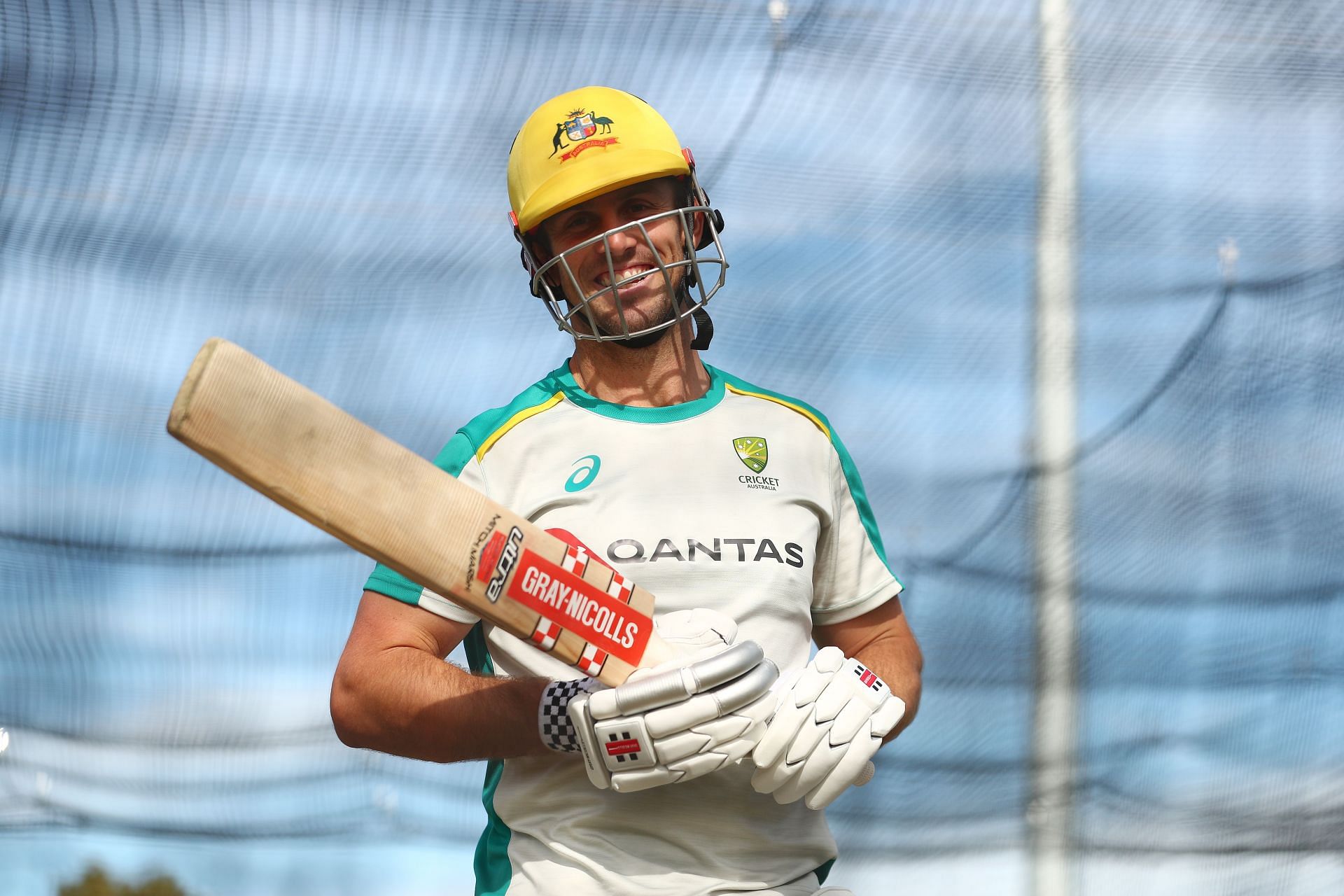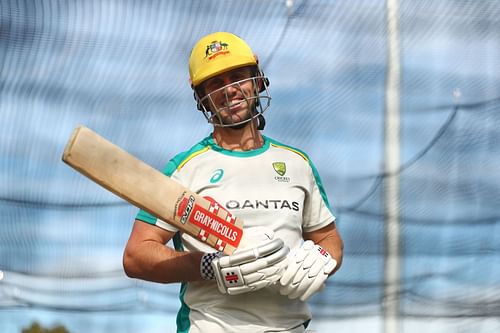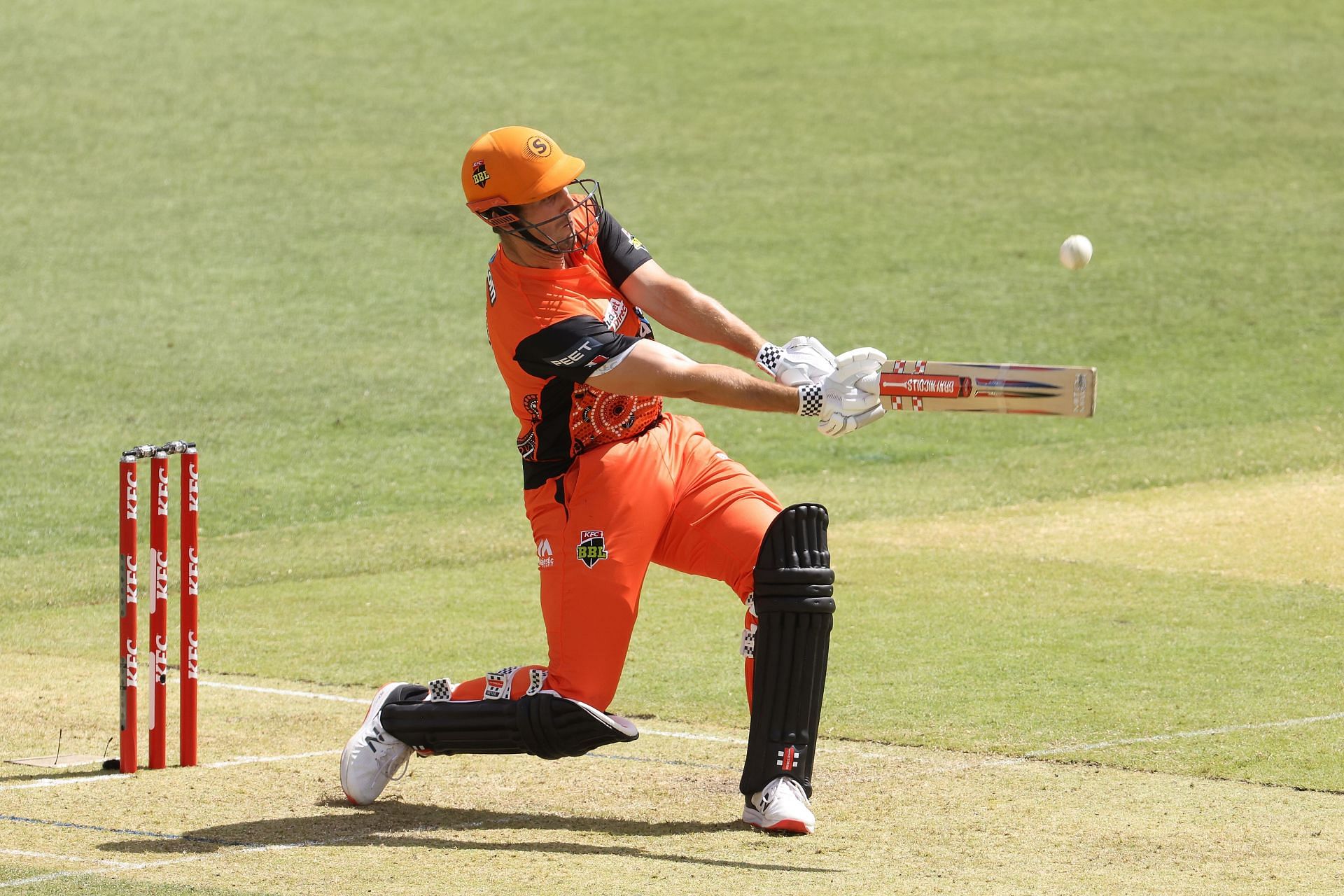
T20 World Cup 2021: Mitchell Marsh is the answer to Australia's no.3 conundrum

Australian all-rounder Mitchell Marsh was expected to bat in the no.3 spot for Australia at the T20 World Cup 2021. Yet the 31-year old found himself out of the playing XI after Australia's first two Super 12 phase games.
Australia are currently in a precarious position in the points table in Group 1 following their loss against arch-rivals England. Mitchell Marsh didn't feature in the game. A loss against Bangladesh in their next encounter would see the Aussies get eliminated, elongating their wait for the slusive T20 World Cup title.
Since the loss to England, several Australian pundits and former players have called for Mitchell Marsh's inclusion in the team. The all-rounder came into the T20 World Cup on the back of successful stints in the no.3 spot in a couple of bilateral series against West Indies and Bangladesh before the ICC event.
Mitchell Marsh's recent form is too good to ignore

Mitchell Marsh has been deemed the next big prospect in Australian cricket since his younger days. While it hasn't gone according to plan for the Perth player, his recent run of form with the bat has simply been too good to ignore.
In the Big Bash League (BBL) in 2019, Marsh found his best form with the bat, scoring 382 runs at an average of 34.73 and a strike rate of 145.25.
In BBL 2020, Marsh matched the high standards he set for himself the previous season. The Perth Scorchers captain scored 315 runs at an average of 39.38 at a strike rate of 147.89. These figures are all the more impressive, considering he was usually batting in fourth or fifth position.
When Australia had to tour the West Indies and Bangladesh for two white-ball series earlier this year, they were forced to do so without the likes of their mainstays David Warner, Steve Smith and Glenn Maxwell.
It was Mitchell Marsh's opportunity, and the all-rounder grabbed it with both hands. The two T20I tours turned out to be shockers for Australia, but Marsh was the Aussies' shining light throughout.
Marsh aggregated 375 runs, including four fifties and three 40s at no.3 in 10 T20Is, in the last three months. He also scored a sublime century for Western Australia in the Marsh Cup before coming to the T20 World Cup. He has done everything to cement his spot in the Australian side and needs to be trusted to play his role.
What does this mean for Steve Smith?
T20 cricket can be hard on a player's reputation. Especially when the said player is regarded as one of the best batters in the longer formats. Such is the case with Steve Smith. Australia's supreme batter has been going through a rather lean run in the shortest format.
In 11 T20 matches this year, Smith has scored 216 runs at an average of 27 and a strike rate of just 108. It's something that hampers not only his but the team's ability to produce an impactful knock in the crash, bang and wallop format.
Does this mean Smith should be dropped from the Australian team? Absolutely not. Smith is an excellent player against spin bowling that could help Australia make the most of tactical match-ups and also be the anchor the side looks to bat around. More than that, he is a big-match player and a bonafide match-winner.
So, where does the problem lie? The answer might be found when one compares the numbers of the two players in their impact in winning contributions.
In 55 T20 matches, when Marsh ended up on the winning side, the Perth all-rounder scored 1192 runs at an average of 42.57 and a strike rate of 140.73. By comparison, in 117 wins, Smith has scored 2481 runs at an average of 34.46 and a strike rate of 130.92.
Given the nature of T20 cricket, the kind of impact created by a quickfire knock can have positive implications on the result. While Smith is a master of run chases and can be the calming influence a side requires when chasing tricky totals, Marsh is just the kind of enforcer Australia miss when they want to up their scoring rate or break the shackles.
This was precisely the predicament Australia found themselves in when they were battered by England. With a rare failure from Smith, Glenn Maxwell was exposed early in the powerplay, which turned out to be a recipe for disaster for the Australians.
While Josh Inglis has made a case for his selection in recent times, Mitchell Marsh not only enables Australia to go with a floater in the middle order but also a seventh bowling option, if required. It's something of a luxury that some of the best T20 units can only wish to afford. Let's not forget Ashton Agar, who has a made a strong case for his place in the side as well.